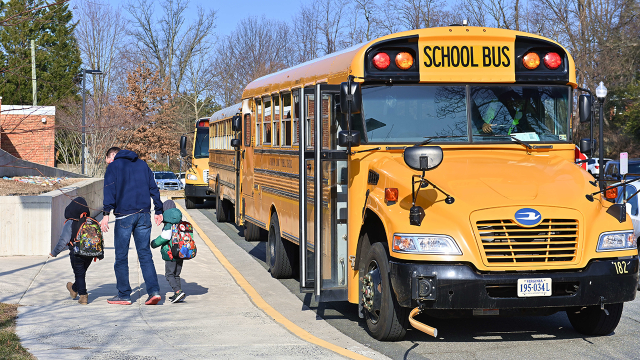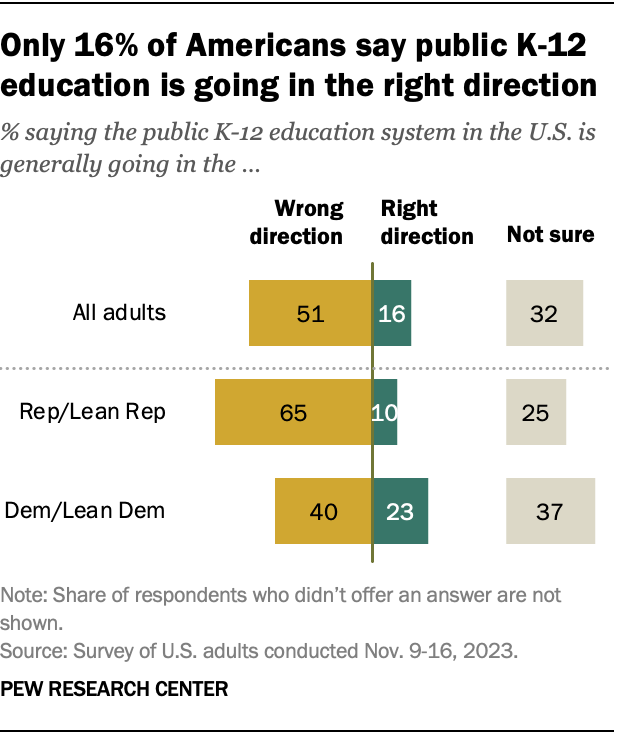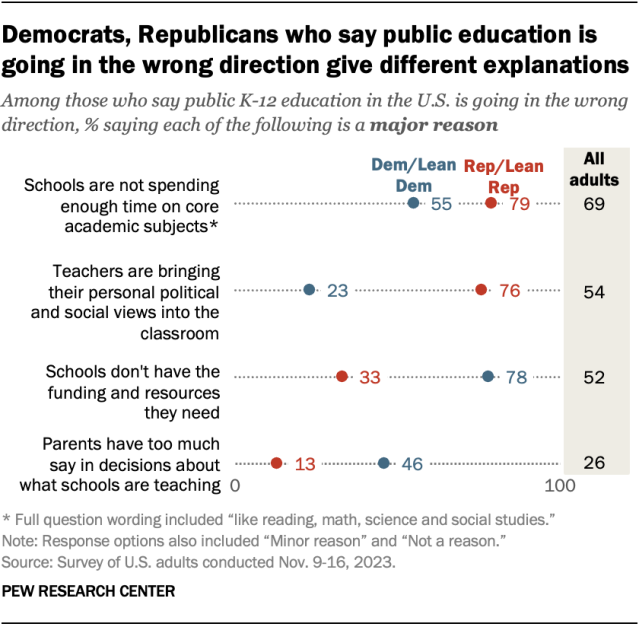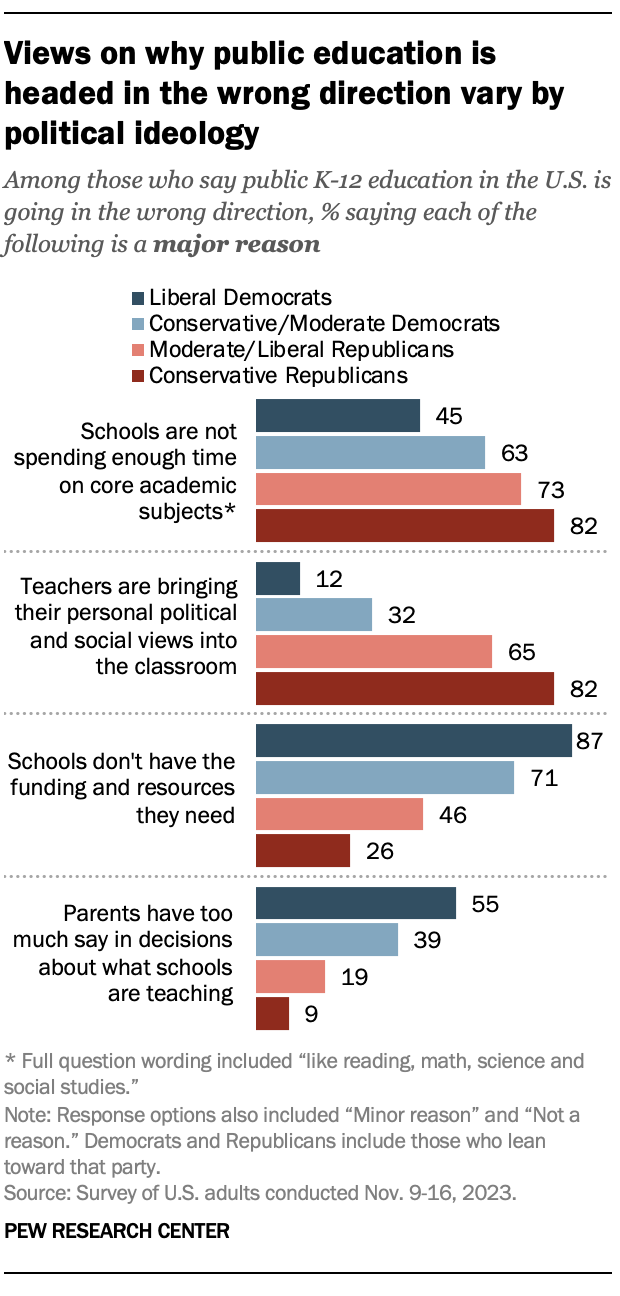
About half of U.S. adults (51%) say the country’s public K-12 education system is generally going in the wrong direction. A far smaller share (16%) say it’s going in the right direction, and about a third (32%) are not sure, according to a Pew Research Center survey conducted in November 2023.
Pew Research Center conducted this analysis to understand how Americans view the K-12 public education system. We surveyed 5,029 U.S. adults from Nov. 9 to Nov. 16, 2023.
The survey was conducted by Ipsos for Pew Research Center on the Ipsos KnowledgePanel Omnibus. The KnowledgePanel is a probability-based web panel recruited primarily through national, random sampling of residential addresses. The survey is weighted by gender, age, race, ethnicity, education, income and other categories.
Here are the questions used for this analysis, along with responses, and the survey methodology.

A majority of those who say it’s headed in the wrong direction say a major reason is that schools are not spending enough time on core academic subjects.
These findings come amid debates about what is taught in schools, as well as concerns about school budget cuts and students falling behind academically.
Related: Race and LGBTQ Issues in K-12 Schools
Republicans are more likely than Democrats to say the public K-12 education system is going in the wrong direction. About two-thirds of Republicans and Republican-leaning independents (65%) say this, compared with 40% of Democrats and Democratic leaners. In turn, 23% of Democrats and 10% of Republicans say it’s headed in the right direction.
Among Republicans, conservatives are the most likely to say public education is headed in the wrong direction: 75% say this, compared with 52% of moderate or liberal Republicans. There are no significant differences among Democrats by ideology.
Similar shares of K-12 parents and adults who don’t have a child in K-12 schools say the system is going in the wrong direction.
A separate Center survey of public K-12 teachers found that 82% think the overall state of public K-12 education has gotten worse in the past five years. And many teachers are pessimistic about the future.
Related: What’s It Like To Be A Teacher in America Today?
Why do Americans think public K-12 education is going in the wrong direction?
We asked adults who say the public education system is going in the wrong direction why that might be. About half or more say the following are major reasons:
- Schools not spending enough time on core academic subjects, like reading, math, science and social studies (69%)
- Teachers bringing their personal political and social views into the classroom (54%)
- Schools not having the funding and resources they need (52%)
About a quarter (26%) say a major reason is that parents have too much influence in decisions about what schools are teaching.
How views vary by party

Americans in each party point to different reasons why public education is headed in the wrong direction.
Republicans are more likely than Democrats to say major reasons are:
- A lack of focus on core academic subjects (79% vs. 55%)
- Teachers bringing their personal views into the classroom (76% vs. 23%)

In turn, Democrats are more likely than Republicans to point to:
- Insufficient school funding and resources (78% vs. 33%)
- Parents having too much say in what schools are teaching (46% vs. 13%)
Views also vary within each party by ideology.
Among Republicans, conservatives are particularly likely to cite a lack of focus on core academic subjects and teachers bringing their personal views into the classroom.
Among Democrats, liberals are especially likely to cite schools lacking resources and parents having too much say in the curriculum.
Note: Here are the questions used for this analysis, along with responses, and the survey methodology.
